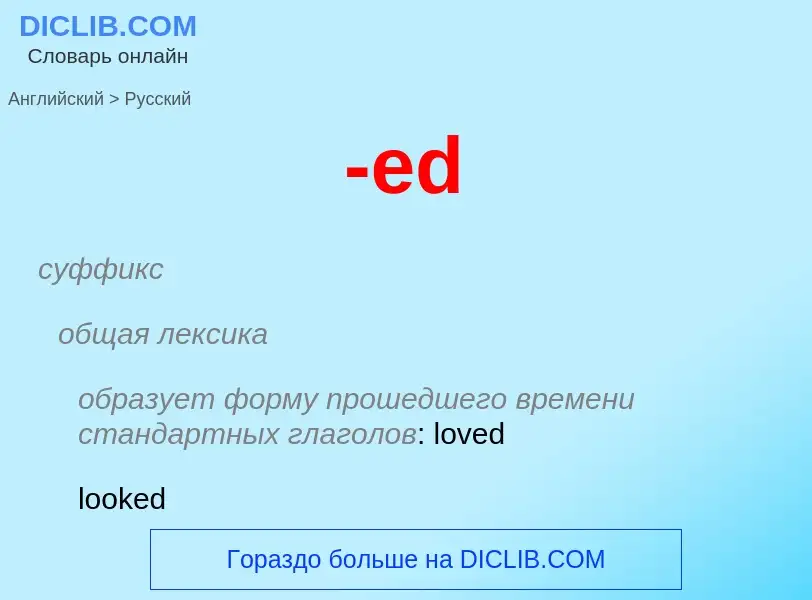Translation and analysis of words by ChatGPT artificial intelligence
On this page you can get a detailed analysis of a word or phrase, produced by the best artificial intelligence technology to date:
- how the word is used
- frequency of use
- it is used more often in oral or written speech
- word translation options
- usage examples (several phrases with translation)
- etymology
-ed - translation to russian
суффикс
общая лексика
образует форму прошедшего времени стандартных глаголов: loved
looked
wanted
образует от существительных (сложнопроизводные) прилагательные
[-iθ]
общая лексика
встречается в архаической форме глаголов третьего лица ед. ч. наст. вр.: knoweth
thinketh
doth
hath
Смотрите также
Definition
Wikipedia
Verbs constitute one of the main parts of speech (word classes) in the English language. Like other types of words in the language, English verbs are not heavily inflected. Most combinations of tense, aspect, mood and voice are expressed periphrastically, using constructions with auxiliary verbs.
Generally, the only inflected forms of an English verb are a third person singular present tense form ending in -s, a past tense (also called preterite), a past participle (which may be the same as the past tense), and a form ending in -ing that serves as a present participle and gerund. Most verbs inflect in a simple regular fashion, although there are about 200 irregular verbs; the irregularity in nearly all cases concerns the past tense and past participle forms. The copula verb be has a larger number of different inflected forms, and is highly irregular.
For details of the uses of particular verb tenses and other forms, see the article Uses of English verb forms. For certain other specific topics, see the articles listed in the adjacent box.

